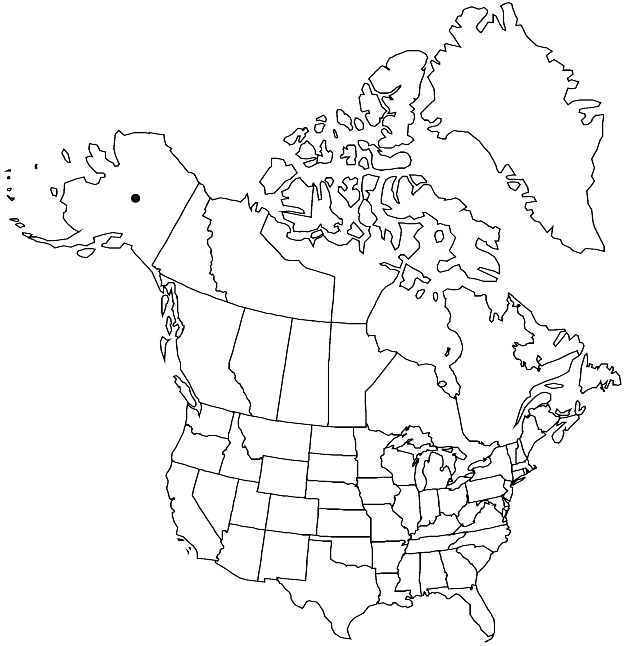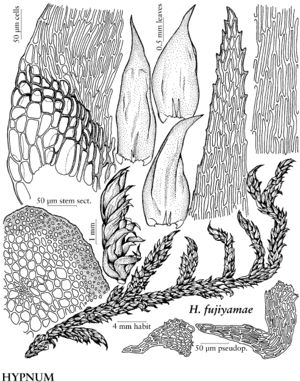Hypnum fujiyamae
Index Bryol. Suppl., 202. 1900.
Plants large, golden to rusty green. Stems 3–15 cm, yellowish brown, creeping to suberect, irregularly to distantly pinnate, branches 2–5+ cm; hyalodermis absent, central strand weakly developed; pseudoparaphyllia foliose, lanceolate to ovate, margins not incised. Stem leaves falcate-secund, ovate-lanceolate to ovate, gradually narrowed to apex, 0.2–3 × 0.1–1 mm; base not decurrent, not or sometimes slightly auriculate in supra-alar region; margins sometimes recurved proximally, rarely nearly to apex, somewhat toothed in apex; apex acuminate; costa double, faint to distinct; alar cells usually pigmented in interior, hyaline to yellowish on margins, region well defined, excavate, 3 or 4 cells deep, 5–8 cells wide at base, inner cells grading into basal cells; basal laminal cells shorter, wider than medial cells, sometimes brownish yellow, walls porose, pitted; medial cells 50–80 × 4–6 µm, walls not pitted. Sexual condition dioicous or phyllodioicous. Sporophytes unknown in North America.
Habitat: Tundra fen slopes over shallow peat in late-snow lying sites
Elevation: moderate elevations (200 m)
Distribution

Alaska, e Asia (Japan, Korea).
Discussion
Hypnum fujiyamae, known only from Attu Island in the flora area, somewhat resembles H. lindbergii in the field, but the golden to brownish color and imbricate cuspidate apices of the shoots distinguish H. fujiyamae. While H. lindbergii forms turflike mats, H. fujiyamae has reclining shoots. Microscopically, these species are clearly unrelated. Plants of H. fujiyamae are shiny; the stem apices are markedly pointed with imbricate leaves; the branches are 2–3 mm wide; and the leaves are plicate with margins curved beyond the supra-alar region, which is made of brownish, subquadrate to rectangular cells.
Selected References
None.
